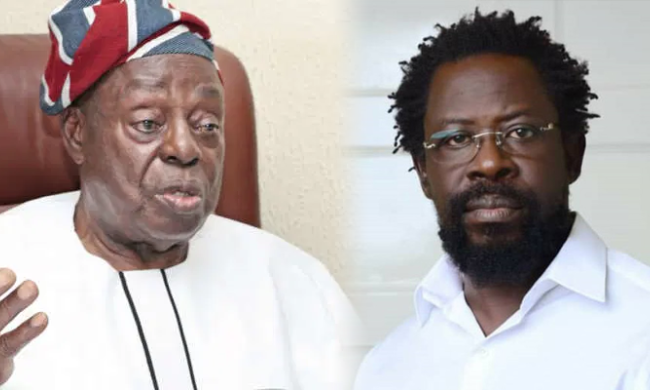In a dramatic turn of events, the Legal Practitioners Disciplinary Committee (LPDC) has rejected a petition by Chief Afe Babalola SAN’s law firm, Emmanuel Chambers, to revoke the legal license of outspoken lawyer and author, Dele Farotimi, over allegations of defamation and professional misconduct. The case, which centered around statements in Farotimi’s controversial book, Nigeria and Criminal Justice System, has sparked heated debates within the Nigerian legal community.
The petition, filed by Emmanuel Chambers’ lawyer, Ola Faro, accused Farotimi of tarnishing the reputation of the Supreme Court and the legal profession through claims of corruption, bribery, and other unethical practices. The petition highlighted references to a high-profile legal battle involving the Supreme Court, specifically suit number SC/146/2006, as evidence of Farotimi’s alleged misconduct.
Defamation or Free Speech? The Case at Hand
At the heart of the dispute is Farotimi’s book, where he criticizes the Nigerian judiciary and raises allegations of corruption in the legal system. The book reportedly references the case of Major Muritala Gbadamosi Eletu versus HRH Oba Tijani Akinloye, a matter that affected several residential estates. Emmanuel Chambers accused Farotimi of distorting facts and using his legal knowledge to mislead the public and undermine the Supreme Court’s credibility.
The petition argued that such statements violated several provisions of the 2023 Rules of Professional Conduct for Legal Practitioners, warranting the harsh sanction of striking Farotimi’s name off the Roll of Legal Practitioners.
LPDC’s Verdict: A Question of Jurisdiction
After reviewing the case, the LPDC, chaired by Justice Isaq Usman Bello, dismissed the petition on jurisdictional grounds. The committee concluded that the alleged offences were tied to Farotimi’s role as an author, not his conduct as a practicing lawyer. Justice Bello stated that the LPDC lacked authority to adjudicate matters related to publications, advising aggrieved parties to seek redress through the regular courts.
In its report, the LPDC clarified: “The publication is an intellectual property and not a conduct or action committed while practicing as a legal practitioner. All aggrieved parties who find the publication ‘defamatory’ should ventilate their grievances through the regular courts.”
This ruling highlights the boundaries of the LPDC’s mandate, which is strictly limited to regulating professional conduct within legal practice.
Background: The Clash of Titans
This case is particularly notable given the stature of the parties involved. Chief Afe Babalola SAN is a revered figure in Nigeria’s legal landscape, with decades of experience and a reputation for upholding high standards of professionalism. On the other hand, Dele Farotimi has built a reputation as a fearless critic of Nigeria’s political and judicial systems.
Farotimi’s outspoken views have often placed him at odds with the establishment. His book, Nigeria and Criminal Justice System, is a bold critique of the judiciary, accusing it of enabling systemic corruption. Critics argue that Farotimi’s approach crosses the line into defamation, while supporters view it as a necessary call for reform.
Reactions: A Divided Legal Community
The LPDC’s decision has elicited mixed reactions. Some legal practitioners commend the committee for upholding the principle of free speech and resisting attempts to stifle dissenting voices. Others, however, argue that the decision sets a dangerous precedent, allowing lawyers to make unsubstantiated claims under the guise of authorship.
A senior lawyer, speaking anonymously, expressed concern: “While free speech is crucial, we must also ensure that lawyers do not use their knowledge of the law to mislead the public or disrespect the judiciary.”
Conversely, human rights activists have lauded the LPDC’s ruling as a victory for intellectual freedom. “Dele Farotimi’s criticisms may be uncomfortable, but they are necessary for progress. The LPDC has done well to separate professional misconduct from personal expression,” said a prominent activist.

